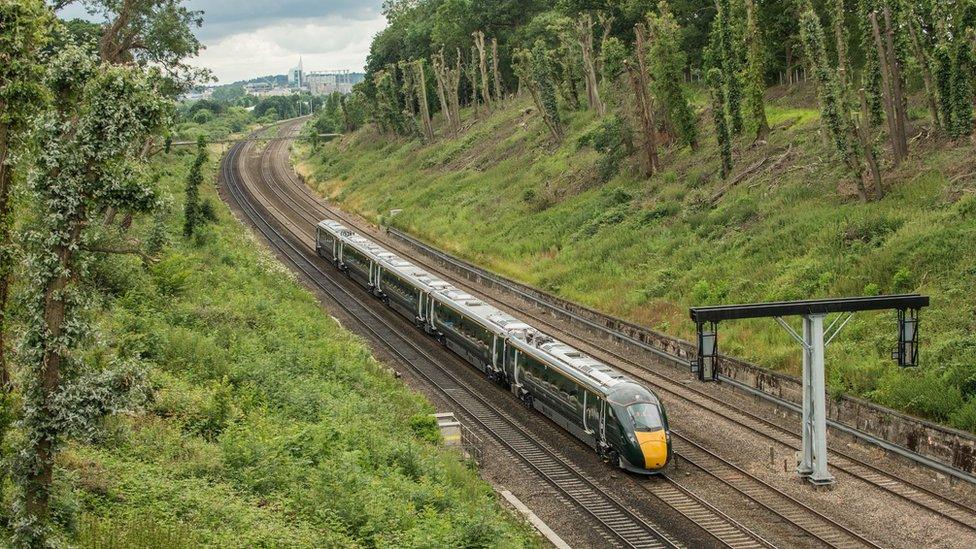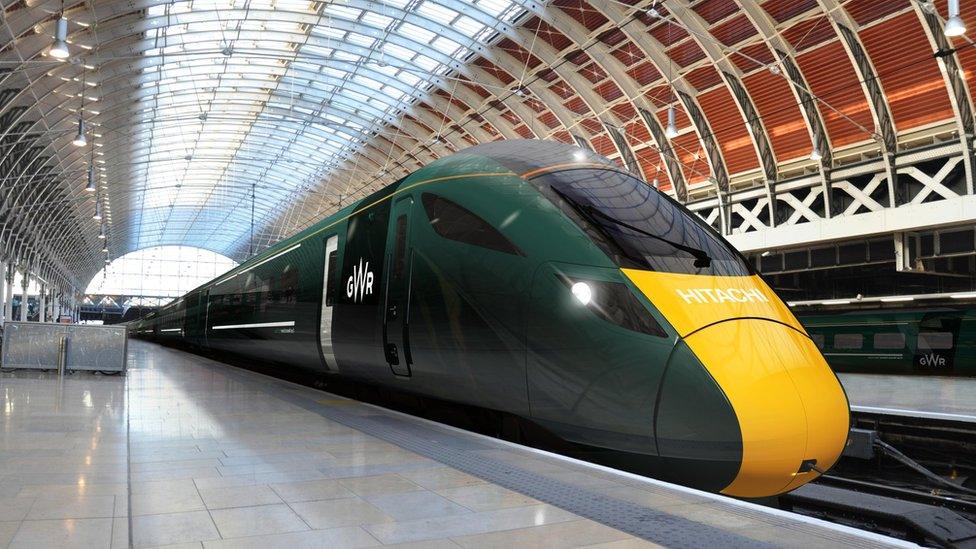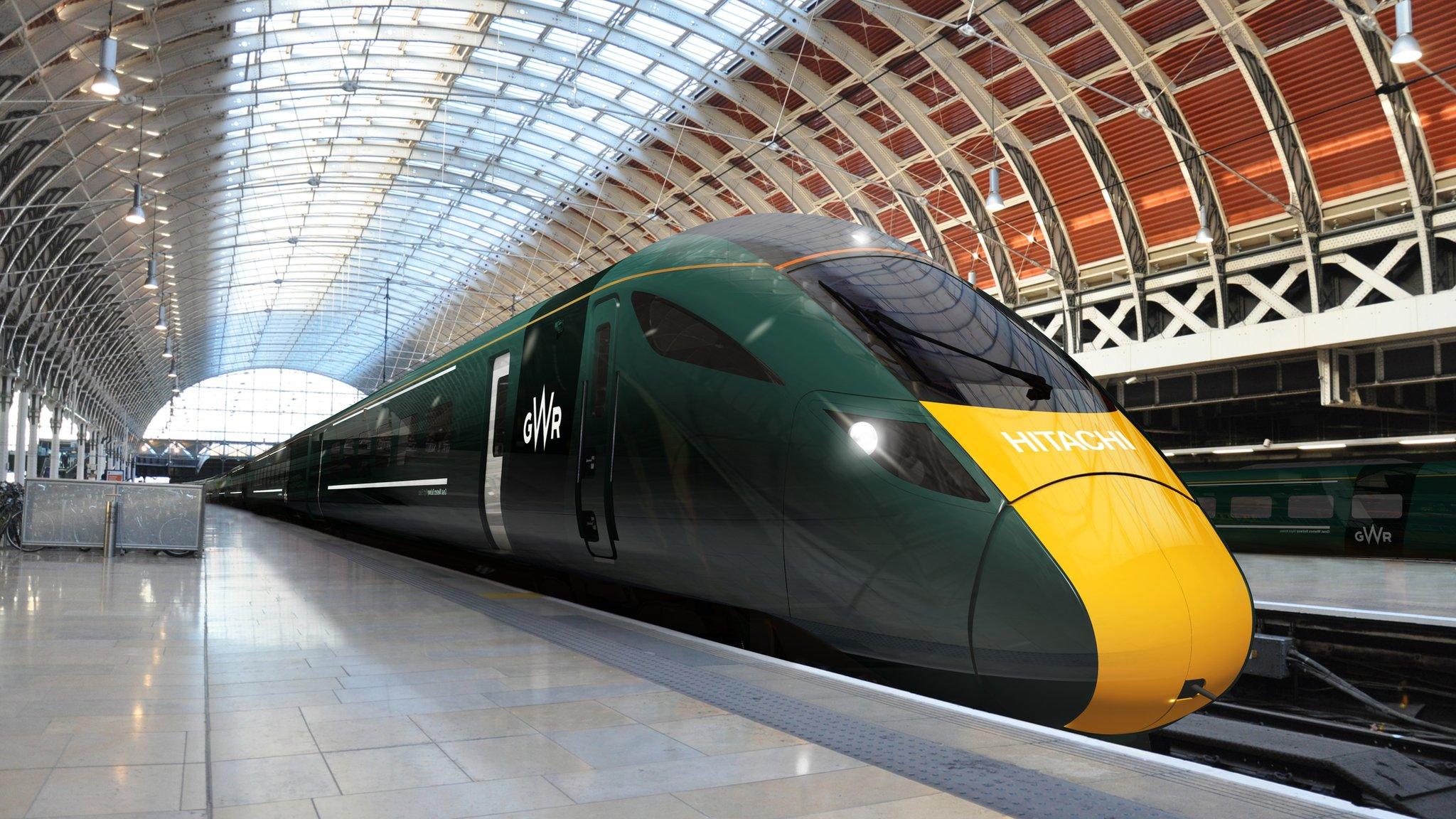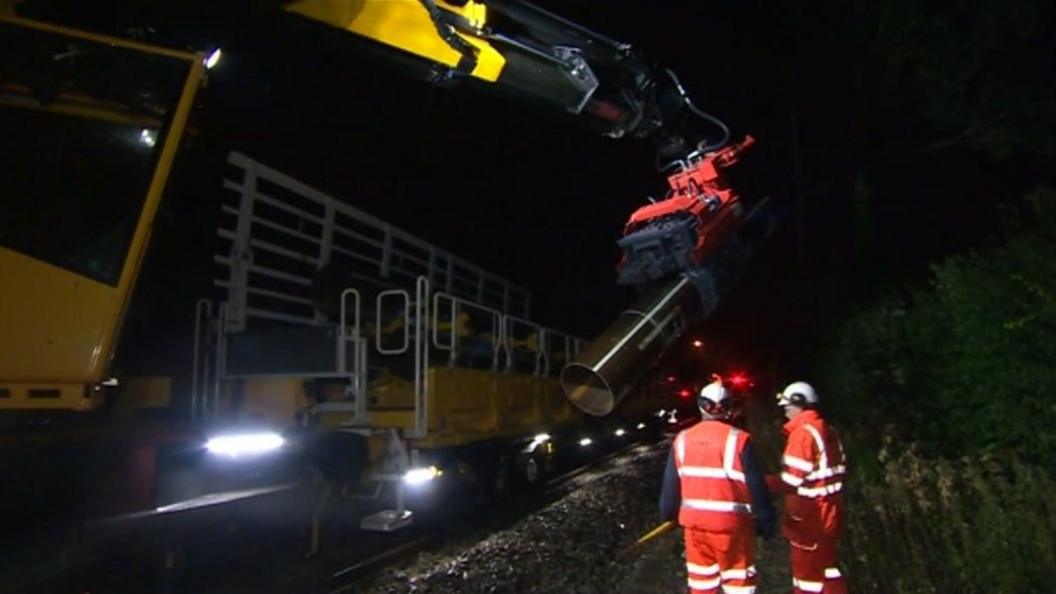Great Western rail modernisation costs rocket, says NAO
- Published

The government has been blamed for huge extra costs and lengthy delays to the modernisation of the Great Western railway network in England and Wales.
The National Audit Office (NAO) says the estimated cost of the project since 2013 has shot up by £2.1bn to £5.6bn.
Meanwhile delays have added between 18 and 36 months to the project's timescale.
Yesterday the government said electrification of four short parts of the network would now be "deferred".
The audit office's report puts the blame for the project's problems firmly on poor government planning.
It said the modernisation plan was a "case study in how not to manage a major programme".
"Before 2015, the Department of Transport did not plan and manage all the projects which now make up the Great Western route modernisation industry programme in a sufficiently joined up way," said Amyas Morse, head of the NAO.
The Great Western network, which stretches from London out to South Wales and the south west of England, is particularly busy and overcrowded.
The number of passengers arriving at Paddington during the daily peak period is predicted to rise by 81% in the five years up to 2018-19.

Analysis by Richard Westcott, Transport Correspondent
Because it will take longer to electrify the lines, the government has been forced to change a multi-billion pound order for new, all-electric trains.
They will now have to be fitted with diesel engines, so that they can go anywhere, but that makes them heavier, which means they are more expensive to run, more polluting and do more damage to the track.
They may even be slower than the trains they are replacing, so believe it or not, journeys could possibly take longer.
And it is not just passengers in the south west that will suffer.
When one line gets brand new trains, the old stock is used to upgrade services in different parts of the country.
So problems in the west country may also mean people in the north of England and Scotland have to wait longer for their better trains.

Modernisation of the Great Western network started in 2014 and involves electrifying various lines including the one between Maidenhead and Cardiff; ordering new trains; modifying or building new bridges; and changing various services.
Among the problems identified by the NAO were that by the time an overall plan was eventually devised last year:
new trains had already been ordered two years before, and even before infrastructure planning had been completed
electrification work had already been going on for more than a year
the estimated costs of the project were unrealistic
the number of bridges that would need replacement or alteration was underestimated
before electrification actually started, Network Rail had failed to devise a "critical path" describing the "minimum feasible schedule for the work"
surveys for the locations of some new structures had not been detailed enough and therefore had to be repeated.
The result, the NAO said, was that electrification alone would cost an extra £330m and the extent of that element should now be reconsidered.
The government auditor also said that the new trains would have to be reconfigured so that they could run under both electrical and diesel power.
Meanwhile the Great Western franchise operator, FirstGroup, would have to bear much higher costs which, combined with less passenger revenue than expected, meant the government would earn less money than expected from the franchise.
Mr Morse added an optimistic note, saying: "It is encouraging that since 2015 the department and Network Rail have a better grip and put in place structures to manage the programme in an integrated way."
"However, significant challenges to the timetable still remain and there is more to do to achieve value for money," he added.
But Meg Hillier MP, chair of the parliamentary committee of public accounts, was not impressed.
"The Department for Transport and Network Rails' failure to integrate crucial elements of the modernisation into one programme from the start has cost passengers and taxpayers' time and money," she said.
"I do not understand why it took the department two years from agreeing to buy new trains to produce a business case," she added.
- Published8 November 2016

- Published21 September 2015

- Published13 August 2014
